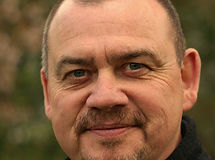Transform groups into
high-performing resilient teams
BECOME A RESILIENT LEADERS CONSULTANT
RESILIENT LEADERS DEVELOPMENT PROGRAMME (RLDP™)
Instant access to our FREE webinar: Navigating Uncertainty
IMPORTANCE OF RESILIENT LEADERSHIP
THE ORIGINS OF RLE™
Motivated by the paralysing affect the London bombings had on the people involved, we began our work on a sustainable and replicable way to build resilient leadership.
What spurred us on was this - despite the threat of disruption, loss and distraction - the majority of organisations focused their contingency planning on systems, processes and infrastructure with little attention to preparing their people for the impact of such events.
We decided to change that.

In the 1990s, 40% of the 11,500 firms regulated by the FSA had no disaster recovery or back up systems in place. Where they did, it was almost entirely in infrastructure.
People drive the organisations they work for.
Without preparing them to lead through uncertainty and change – the organisation would be weakened, often irreparably.
And so our journey began to provide leaders at all levels the tools and knowledge they need to build their resilient leadership and cope with whatever comes their way.
RESILIENCE
The next crisis is always just around the corner.
Be it on a global or societal level - such as a bombing, a pandemic, a major change to trading arrangements or a stock market crash.
Or on an individual or personal level - such as an important meeting, redundancy, career change, serious illness or a major change in circumstance.
This is not a pessimistic view of life…more the reality of living in an uncertain and ever-changing world.
To navigate this world then, leadership skills are not about understanding a static framework from which to issue orders and direct activity but about an ongoing process of discovery, development and integration designed to build the muscle memory you need to step up and step in as required, whatever situation presents itself.
In short, leadership is about resilience.
DEVELOPING THE ELEMENTS OF RESILIENT LEADERSHIP
Our research started in 2000 by gaining core insights from a group of highly experienced leaders across a range of industries and sectors. We began to understand what it took to recover from crisis, serious incidents and periods of organisational endurance and return to equilibrium.
It starts with ‘who I am' and ‘what I do’, identifying two critical elements of resilient leadership in each. This is how we began to engineer the four elements of resilient leadership.
These four Resilient Leaders Elements have stood the test of time and formed the foundation for a suite of tools and knowledge that would help leaders prepare for, cope with and recover from whatever comes their way.

We trust real-life experience and believe that anyone can be a resilient leader, when they are confident in ‘who they are’ and ‘what they do’.
What I do
Clarity of Direction and Resilient Decision Making: setting a context, knowing where you are, where you want to get to and focusing on results
Who I am
Awareness and Leadership Presence: channelling your emotions, motivating yourself and others in a positive and purposeful way


RLE™ TODAY
We train people to build resilient leaders.
Our cornerstone is the Accreditation Programme. Through this, aspiring resilient leaders consultants learn about the four elements, the 12 facets and all the accompanying tools and techniques needed to run their own programmes to build resilient leaders.
Could you be a resilient leaders consultant?
Each potential consultant has a meeting with one of the co-founders before joining a programme. We want to make sure that we are a good fit for you and you are a good fit for our community of practice.
We are looking for individuals with a:
-
Strong ethical code
-
Respect for professional capability
-
With clarity about how the RLE™ will add value
-
Belief that anyone can be a resilient leader
-
Belief that it takes effort over time to deliver sustained leadership growth
RLE™ FOUNDERS
Rachel McGill, Co-Founder RLE™ and Consultant Community Development Lead

Having served as an army officer, Rachel has almost 30 years’ leadership development experience and specialises in the development of resilience in leaders and the tools they need to succeed.
Rachel has facilitated hundreds of courses for thousands of people and leads on ensuring pragmatic approaches to leadership development.
Rachel is no stranger to the importance of resilience, frequently challenging the norm and achieving success in different domains. In addition to founding RLE™, highlights of Rachel’s career include becoming the youngest captain in the Royal Army Ordnance Corps at 23 and being part of the 3-woman team that broke the world record for the fastest circumnavigation of the globe in a car.
Jeremy Mead, Co-Founder RLE™ and Programme Development Lead

Jeremy was vice president for leadership development at Unilever, having spent 18 years with them in a variety of leadership and operational roles. Since 2004, he has specialised in working with leaders and their teams to improve performance.
Having spent several years in academic research, Jeremy brings this approach to the continuous development of the RLE™ and RLDP™. He is passionate about combining academic rigour with pragmatism in order to deliver practical ways to develop resilient leadership for individuals, teams and organisations.
Jeremy has directed courses, worked with senior teams all over the world and coached people from all walks of life. In addition to founding RLE™, highlights of Jeremy’s career include being part of the team that quadrupled the size of Unilever’s ice cream business in five years and going onto develop the long term strategy for Unilever as a member of Project Foresight.
RLE™ CERTIFIED INTERNATIONAL PARTNERS
Delivering the RLE™ Accreditation in their region
Australia
Heather De Blasio, Co-Founder, SOAR Leadership International

Heather De Blasio excels in transformative leadership development. As co-founder of SOAR Leadership International, a certified RLE international partner, Heather uses the RLE framework to challenge leaders to commit to making a profound and lasting impact by bringing intentionality to every facet of their leadership – be it identity, authenticity, service to others or actions.
Heather De Blasio is an Accredited Resilient Leaders Consultant, a Certified FIRO-B® Consultant and Certified Happiness Practitioner. A recipient of the Excellence Award from the Australian Council of Educational Research (2017), she holds an M Ed (Educational Management) and Grad Dip Ed (Ed Counselling).
Tony De Blasio, Co-Founder, SOAR Leadership International

Tony De Blasio is a qualified clinical psychologist with 25 years experience. His approach, which integrates psychological insights with practical strategies, empowers leaders to overcome their personal barriers, unlock their full potential and confidently drive organisational success.
Tony De Blasio holds a Master of Psychology (Clinical) and a Diploma in Clinical Hypnosis. He is an experienced EMDR practitioner, Accredited Resilient Leaders™ Consultant and MBTI® Consultant with extensive experience in government departments and trauma-related psychological services, applying psychological principles to enhance leadership capabilities and team performance.
_RLE%20logo.png)


